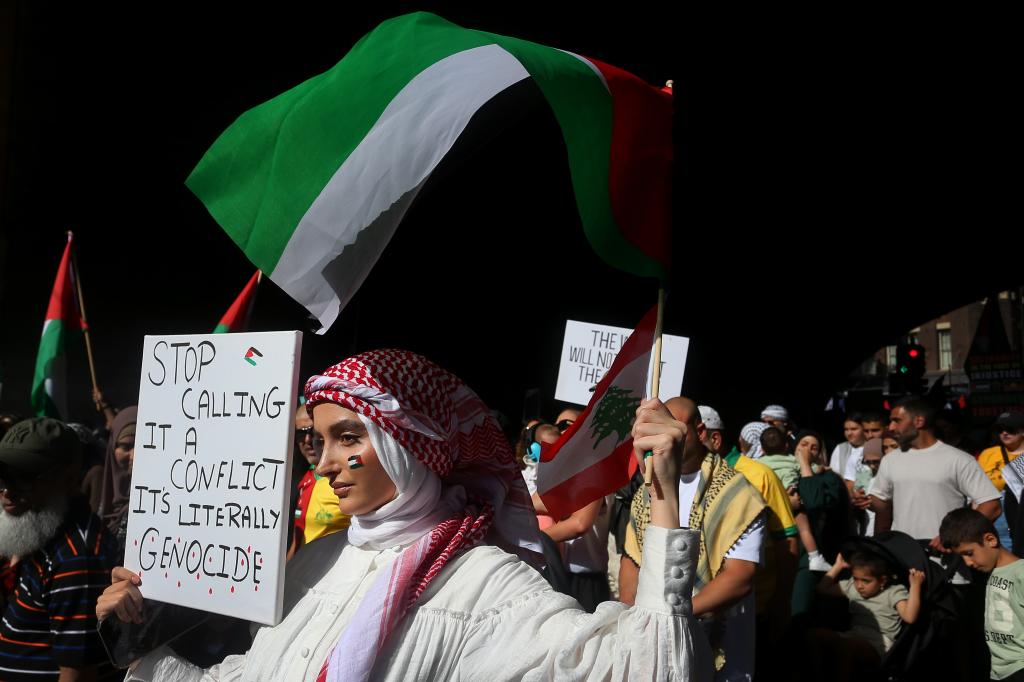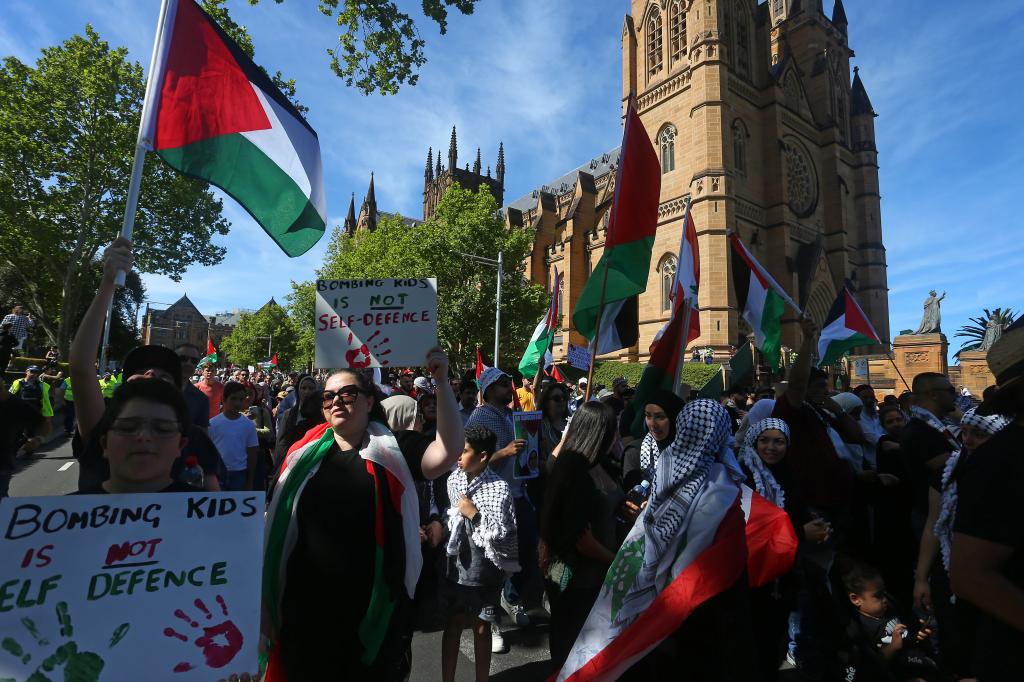
The Australian Government is slowly evolving its stance to be more critical of Israel’s bombardment of the Gaza strip in Palestine, which is now in its 26th day. Prime Minister Anthony Albanese stated that “every Palestinian life matters, like every Israeli life matters”.
The Prime Minister spoke at a conference in Melbourne on Thursday where he discussed the “civilian toll” of Israel’s bombing campaign.
About 1,400 Israelis were killed in Palestinian militant group Hamas’ attack on October 7. Since then, more than 9,000 Palestinians have been killed in Israel’s bombardments, more than 3,600 of which have been children. Tens of thousands have been left wounded, and hundreds of bodies are believed to still be trapped in the rubble, according to Gazan authorities. You can read more about those who have lost their lives in Palestine here. (Note: it has not been possible for journalists to independently verify death toll figures from either Israeli or Palestinian authorities.)
“The civilian toll is quite rightly causing enormous concern around the world,” Albanese said, per ABC News.
“Every Palestinian life matters, like every Israeli life matters.
“Every effort has to be made to ensure that innocent civilians are protected to every extent possible.
“It is very difficult because of the way that Hamas operates with the use of civilian infrastructure being mixed with what is effectively military infrastructure … but every single effort has to be made.”
In the first two weeks of its campaign to “flatten” Gaza, Israeli bombed seven hospitals, nine ambulances and 48 schools. Since then, its targets have included a UN school and a refugee camp.
Israeli forces claim these sites were hiding Hamas officials; in return, Hamas claims Israel is fabricating these claims in order to justify ethnic cleansing. Either way, sacrificing civilians in war is a violation of international law.
“I met with people yesterday afternoon, who have lost family members in Gaza,” Albanese said.
“They are quite right to be traumatised and want their government to speak up for them just as the government has spoken up for the loss of Israeli lives and for the families concerned about hostages and the consequences of Hamas’ atrocities.”
What is the Australian government’s stance on Israel and Palestine?
The comments appear to be a pivot from Albanese’s firmly pro-Israel stance in the wake of Hamas’ October 7 incursion, during which 1,400 people died and at least 200 people were taken hostage.
“This is an abhorrent attack on Israel. This is indiscriminate. Civilians being targeted, killed and murdered, and as well, many of them being taken as hostages,” he told ABC’s Insiders program on October 8, after Hamas’ attack on Israel.
“Of course, people are worried about escalation, but Israel has a right to defend itself and it will be doing so.”
The comments were met with backlash from pro-Palestine activists, who argued the Hamas’ attack on Israel on October 7, while violent and tragic, was a result of Israel’s decades-long occupation of Palestinian land and not “unprovoked” as some described it.
Since then, Albanese has largely continued support for Israel. He has maintained staunch condemnation of Hamas’ attack, and said in a speech to Parliament on October 16 that the killing of Israelis amounted to “mass murder”. He did not use the same language to refer to the killing of Palestinians, nor has he in any media appearances since.
On Friday 27 October, 120 countries, including France and New Zealand, voted for an immediate humanitarian truce between Israel and Palestine. Australia abstained from voting because the motion did not directly and explicitly condemn Hamas — garnering outrage from people across the country. Only 14 countries voted against the motion, including Israel and the US.
Thousands of people have been taking to the streets in Australia to call for a ceasefire, with as many as 50,000 marching in Sydney last Sunday chanting slogans such as “Albanese you can’t hide, you’re supporting genocide” and “Blood on your hands”. The protests have been ongoing for three weeks now, with the fourth wave of protests planned for the coming weekend.


Foreign Minister Penny Wong has also changed her stance in recent days. Previously, she condemned Hamas’ attack on civilians, and in the same breath said she could not judge Israel’s killing of civilians.
“I think it’s always very difficult from over here to make judgements about what security approach other countries take. We’ve said Israel has a right to defend itself,” she said on October 10.
However, on Monday she stated that Israel ought to abide by international law.
“Even in war, there are rules,” she said on ABC Radio.
“The international community will not accept ongoing civilian deaths.
“So when Israel’s friends urge Israel to exercise restraint, when Israel’s friends urge Israel to protect civilian lives, it is critical that Israel listens.”
While this is a marked change from the Australian government’s initial stance, it is still weak in comparison to other nations who have openly called for a cease fire.
What are other Australian elected officials saying about Israel and Gaza?
Greens Senator Jordon Steele-John wrote on X: “The context of this escalating conflict cannot be ignored. For there to be peace, there must be an end to the State of Israel’s illegal occupation of the Palestinian territories.”
In a separate tweet, he called for “truth about the horrific crimes that have been committed, and the brutal context of Israel’s ongoing illegal occupation of Palestinian territories that have led to this moment.”
Greens leader Adam Bandt has also called for the end of Israel’s occupation of Palestine, which he said was the only way to restore peace to the region.
International charity Plan International is asking Australians to call on Minister Wong and the Australian government to call for an immediate ceasefire and increase humanitarian aid. You can join those calls here.
Image: Lisa Maree Williams/Getty Images, Michael Currie/SOPA Images/LightRocket via Getty Images
The post What Is Australia’s Stance On Israel-Palestine? Albo’s Shifting View, Explained appeared first on PEDESTRIAN.TV .







